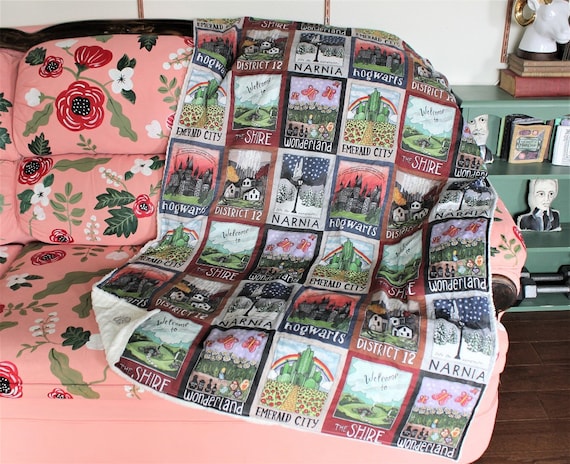Fun
times, peeps, fun times! Grab yourself a glass of something bubbly – because the
sun is shining where I am and it’s a Bank Holiday weekend so why would you not;
I’ve already been on the bucks fizz this morning – and make yourself
comfortable because today I’m chatting with the lovely Dawn Barker about her
novel Let Her Go, and writing in
general.
Before we get started, let’s warm up with a quick fire round. This is always my favourite part.
Ready,
steady, GO:
- Coffee,
tea or…? Gin
(Hendricks) and tonic (elderflower!) [a
woman after my own heart!]
- Favourite
film? The English Patient
- Favourite
book? We Need To Talk
About Kevin by Lionel Shriver
- Summer
or winter? Winter (I live in Australia – summer is too hot
for my Scottish skin!)
- Favourite
Colour? Blue
- Last
thing you ate? Ciabatta with vegemite for breakfast
- Dream
holiday destination? An Antarctica cruise
- If
you could jump to any point in history, who would you have dinner with? Marie Curie
- How
do you like your steak? Medium rare
- What
are your pet peeves? Whinging! I’m a big
believer is solving problems and being positive and proactive.
I do love
that bit! Anyway, on to the proper bookish fun stuff!
Let’s get
started.
Firstly,
I’ve read Let Her Go but for anyone who’s yet to get acquainted
with the book, can you tell us a little bit about it?
First of all, thanks for having me! I had fun with
those quick questions above!
Let
Her Go is my second novel, but my first to be
published in the UK with Canelo!
It’s the story of two sisters, Zoe and Nadia,
one of whom decides to act as a surrogate for the other. The story follows the
journey through each character’s eyes, and also though the child born of this
arrangement, Louise, as they all have to deal with the psychological aftermath
of their decisions.
I first thought about
writing Let Her Go after watching a documentary about a woman who
used a surrogate mother to have a child. In the show, when the surrogate
mother attended the child’s first birthday party, she appeared to be
very attached to the child she had carried. There was something in the body
language of both women that made me wonder how they both really felt,
behind their smiles.
I then heard more and more about the advances
in fertility treatment, and read stories in magazines about people buying
eggs and embryos overseas, then paying women to carry the children
for them. Around the same time, I re-read Margaret Atwood’s The Handmaid’s Tale and saw
that the world she imagined in a speculative fiction novel is
not that far removed from the one we live in now.
I personally felt conflicted: being a mother
myself, I would never deny anyone the right to experience the joy of being
a parent, but there are ethical issues to consider. I wanted to
write Let Her Go to explore my own feelings about this complex
issue.
The whole
premise of the book, the way you get to see both Zoe and Nadia’s points of view
as well as seeing what life is like for Louise as a teenager and
the way you weave the three stories together is clever and effective. Where did
the idea come from?
It was important for me to have the perspectives of
both Zoe and Nadia in this novel. The issue of surrogacy is not one sided, and
there are no heroes and villains as there are in some novels. I wanted the
reader to hear from both of them, to empathise and like and dislike them as
much as we would with any real person.
I didn’t have the thread of Louise’s story until
about my third draft of Let Her Go. I
had been reading the blog of a child born in the US to a surrogate, and he
wrote about he felt powerless and that he had no voice. It then occurred to me
that the third important person in this story – Louise - didn’t have a voice
either, and I felt that her life was, in many ways, more important that the
others’. I found her character very easy to write – I liked her, and I felt
that her story was the simplest in many ways – she was a child, and was
powerless until she found a way to express her feelings.
The
relationship you painted between Zoe and Nadia felt really honest to me, and
you seemed to really get how
relationships between siblings – even step-siblings – work. Do you have
brothers and sisters? Are you close?
I do have siblings: a brother, and a half-brother
and half-sister. We are reasonably close though given the age difference
between myself and my half-siblings, and the fact they still live in Scotland
and I live in Australia, we are not as close as I’d like.
My brother moved to Australia though and that’s
fantastic.
Families are complicated, and that why I like to
write about them. In my professional job, as a child psychiatrist, I work with
families every day and see how complex those relationships are. I wanted to
capture the sense of family duty and love versus our selfish needs and desires
as individuals.
Who did
you find easiest to write, Nadia or Zoe?
It was an interesting process, writing from both
points of view. Initially, I thought I was on Zoe’s ‘side’ – she was the
character I sympathised with most, and Nadia was the villain of the novel.
However, as I wrote Nadia’s scenes, I found myself cheering her on in a way.
Perhaps it was because I could put myself in her shoes more than Zoe’s. Having
gone through three pregnancies of my own, I understood how much Nadia would
have bonded to her child by the very act of carrying the pregnancy
If Let
Her Go was a DVD what would the special features be - are there any
scenes that ended up ‘on the cutting room floor’ that you can share?
Oh, there was so much cut out of it! I write big
first drafts, with all sorts of threads in it, and then start a new document
called ‘deleted bits’ – I always dream that I’ll use those words in another
project but have never even gone back to look at them. And I can’t even bring
myself to go back to them now – once a novel is finished, I like to pack it
away. There are always ways that it could have been improved, but when it’s
done, its done, and I don’t want to create doubt by revisiting it!
Special features might include some of the research:
the interviews I did with three women who had been surrogates, interviews with
surrogacy clinics, the case law from the Supreme Court that I based this story
on, and images of the locations around Western Australia where the book was set
including the stunning Rottnest Island.
Tell us
about how you write: do you prefer a loud room or a quiet room; is your
manuscript typed or handwritten, do you write during set hours or as the word
comes, and at home or some place else? What works best?
I’m pretty disciplined
when I start writing a new project - I have to be, with three children and a
day job as a psychiatrist! I set myself a daily word limit and stick to it, no
matter what. If I get stuck in the scene that I’m writing, I’ll just switch to
another, or even just describe a setting that my characters might be in, just
to keep the word count moving forwards. However, I have to work around my job
and family, and young children have no respect for protected writing time!
I find it
harder to redraft books as I need some time to get into the momentum of the
story and hold pieces of it in my mind as I move things around, deleting and
adding scenes and chapters. At the moment I try to write during the day (in
term time) on two days a week, while my children are at school. I write from
home now so that when I’m having a break, I can do the things that need to be
done in a family, like hanging washing and waiting for tradesmen! I used to
always write in my local library but at the moment, I’m trying to cut out the
travel time and use it to write instead!
What’s
next for you? What are you working on now?
I’m on
the second draft of my third novel, which will hopefully be released in 2018.
It’s not finished enough yet to be able to talk about, and I still don’t even
have a title but hopefully it all comes together before the end of the year!
What’s
the best writing tip you’ve been given?
‘You
can’t edit nothing’!
When I
first started writing I spent (wasted!) so much time dreaming about how it
would feel to have written a novel, but I now understand that you must get the words on the page. They
will probably be terrible words and paragraphs and chapters, but it’s only
through actually writing that you can
write a book.
&
because I’m always on the look out for new book recommendations, what are you
reading right now?
I’ve just started Jock Serong’s On the Java Ridge – I loved his last book, The Rules of Backyard Cricket which, despite the title, was not
really about cricket. It was a crime novel set around the relationship between
two brothers, who happened to be cricketers!
&
what’s the best book you’ve read this year?
I’ve just
checked my Goodreads page to see what I’ve read this year – and I think for me,
it was The Power, by Naomi Alderman.
There are others that I loved at the time, but this is the book that has stayed
with me and that I still think about it and recommend to friends.
Thank you so
much for having me on your blog today! I love to hear from readers so if there
are any questions, please get in touch through my website, www.authordawnbarker.com,
Facebook www.facebook.com/authordawnbarker, or Twitter @drdawnbarker.
Thanks so much for stopping by, Dawn!
Let Her Go is available now, and is currently only 99p on Kindle; a bargain and a good read, what are you even waiting for!?




